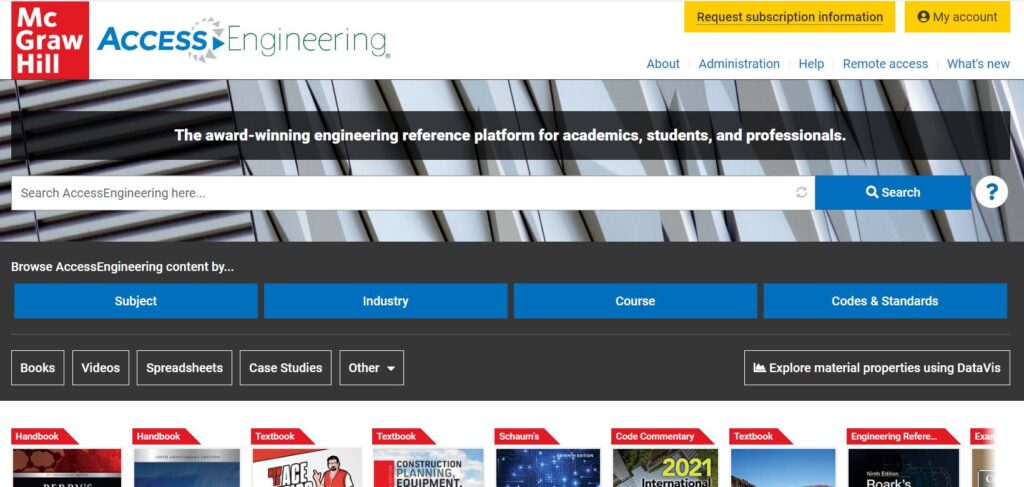
During February we have trial access to Access Engineering, a new resource from McGraw-Hill. Access Engineering is an online reference tool that provides access to authoritative and regularly updated engineering information, including an online library of electronic books with leading titles such as Perry’s Handbook for Chemical Engineers and Marks’ Standard Handbook for Mechanical Engineers.
But the Access Engineering database is much more than an e-book collection. Throughout the trial period you will be able to explore:
Books
Search and read the latest editions of renowned engineering handbooks, reference, and upper-level textbooks. Filter to specific book components including figures, tables, graphs, and example problems.
Instructional Videos
The resource has over 900 instructional videos created by engineering lecturers that show step-by-step solutions to example problems.
Graphs and Tables
The interactive graphs and downloadable tables help you visualise and analyse data, letting you pinpoint values on a graph or input specific values for the variables. You can also download data from tables into an Excel spreadsheet for further data manipulation.
Spreadsheet Calculators
The Excel spreadsheet calculators contain embedded data and formulas to streamline complex calculations.
Case Studies
Case Studies are designed to be used in case method teaching, presenting real-world examples of engineering applications along with questions and problems.
Our free trial will run from 6 February – 8 March 2023. If you’re on campus you can access the database by searching for Access Engineering in Library Search.
To help us evaluate it, please email us your feedback, or leave a reply on this blog.


